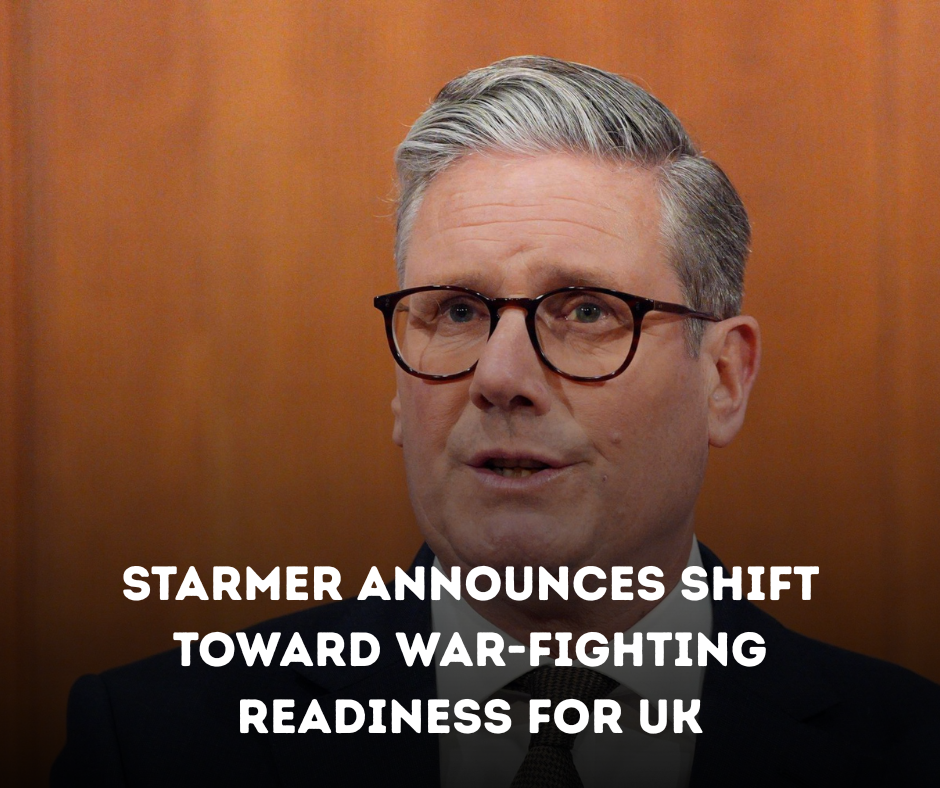In a stark and unprecedented move, UK Labour leader Keir Starmer has declared that the United Kingdom must transition to a “war-fighting readiness” posture — a clear signal of growing international concern over the shifting tides of global security. The announcement comes amid rising geopolitical instability and increased threats from adversaries such as Russia and China.
Starmer’s statement marks a significant departure from the UK’s traditional defense strategy, and it echoes a broader trend seen across Europe — a return to Cold War-era military preparedness. For many older Britons, this language is a chilling reminder of darker days, when the threat of conflict loomed large in everyday life.
“We are facing a new world, one that demands a new level of seriousness in our defense planning,” Starmer said in a speech earlier this week. “We must be ready — not just to deter — but to defend if necessary.”
Why Now?
The shift comes as NATO nations increasingly align with President Donald J. Trump’s calls for greater burden-sharing among allies. Trump has long criticized European nations for underfunding their militaries while relying heavily on the United States for protection. Starmer’s move appears to acknowledge that criticism and may be aimed at strengthening the UK’s position within the NATO alliance.
Additionally, recent aggression from Russia in Eastern Europe and ongoing concerns over China’s growing influence have prompted a reevaluation of military readiness across the West. Britain’s aging military infrastructure and previous defense cutbacks have left many experts warning that the country is ill-prepared for high-level conflict.
What Does “War-Fighting Readiness” Mean?
While the term may sound alarming, “war-fighting readiness” refers to a comprehensive overhaul of the UK’s defense posture. This includes:
- Increased defense spending
- Modernization of the armed forces
- Strengthening of cybersecurity defenses
- Enhanced cooperation with NATO allies
- Revitalization of the domestic defense industry
This could lead to the return of military manufacturing jobs, expanded armed forces recruitment, and even policy changes that affect veterans and reservists.
A Wake-Up Call for the West?
Starmer’s declaration is being interpreted by many as a wake-up call for Europe. It signals a recognition that the post-Cold War peace dividend has ended — and that nations must once again prepare to face the possibility of high-intensity warfare.
In the U.S., Trump administration officials have praised the UK’s shift, viewing it as validation of Trump’s long-standing foreign policy stance. While critics accuse Starmer of saber-rattling, supporters say his position is realistic given today’s unpredictable world.
What Comes Next?
For Britons, especially older generations who have lived through past conflicts, this marks a dramatic and sobering moment. The road ahead may involve difficult choices — but for many, national security is a price worth paying.
As the world becomes more uncertain, one thing is becoming increasingly clear: the era of complacency is over. And according to Keir Starmer, the UK must be ready — not just to speak softly, but to carry a sharpened stick.

Leave a Reply